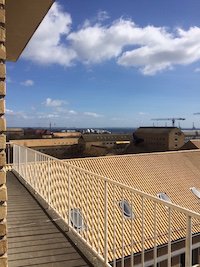There are many examples in history where the overexploitation of resources led to depletion and pollution and caused societal, enviro nmental and technological crises. Yet, there is no comprehensive discussion how societies responded to resource crises, how they perceived and framed these crises, formed and pursued strategies of relief, changed patterns of resource exploitation, ‘constructed’ new resources (such as physical or rhetorical substitutes), employed new geopolitical policies (from securing foreign resources to waging wars) and developed new technologies (such as technologies increasing resource availability or efficiency) to overcome crises.
nmental and technological crises. Yet, there is no comprehensive discussion how societies responded to resource crises, how they perceived and framed these crises, formed and pursued strategies of relief, changed patterns of resource exploitation, ‘constructed’ new resources (such as physical or rhetorical substitutes), employed new geopolitical policies (from securing foreign resources to waging wars) and developed new technologies (such as technologies increasing resource availability or efficiency) to overcome crises.
The aim of this project is to examine connections between resources, crises and technology in Europe or in European engagements beyond Europe in the 16th to 21st centuries. Particular attention will be paid to the circulation of technologies, knowledge and ideas within Europe and from or to Europe, which are related to resource crises. This includes circulation processes within individual countries (e.g. between centers and periphery), in between European countries (e.g. East-West and North-South) and between Europe and other continents (e.g. with European colonies). With this approach we propose to discuss the crossroads between the history of technology, environmental history, and the history of exploitation of natural resources in a longue-durée perspective with the help of individual case studies.
Studying and utilizing natural resources are widely recognized as pressing issues for contemporary Europe and, more broadly, on a global scale. Historical research will shed light on the implications of the construction of (natural or virtual) objects as resources, the peculiarities of the interrelationship between societies, resources and technologies, and conceptions of resources and how they change in time and in different historical periods.